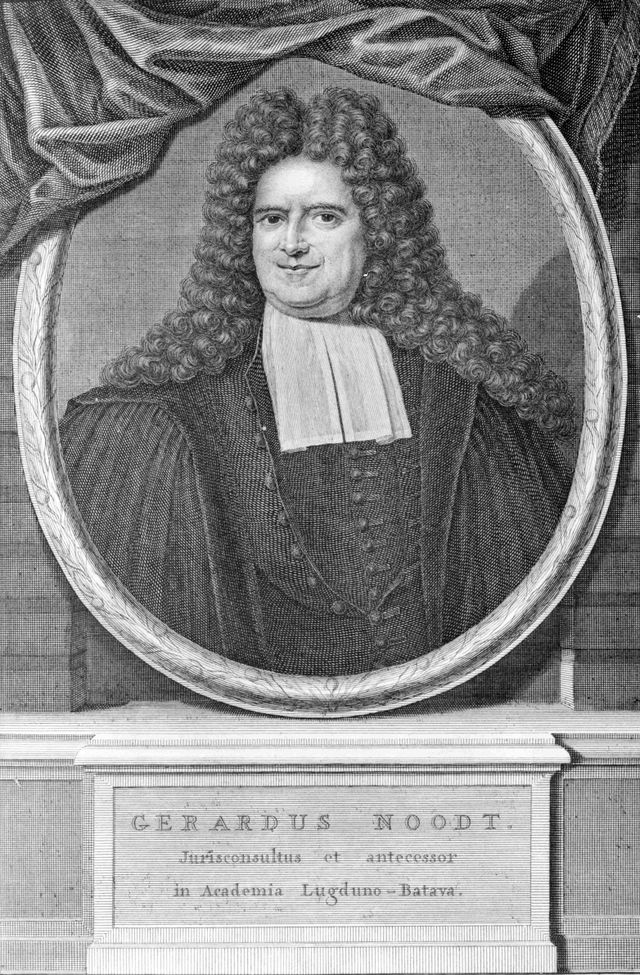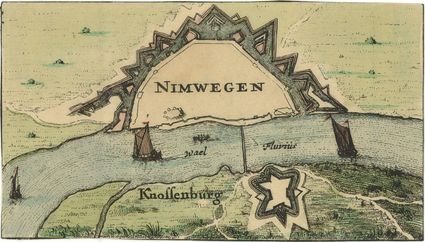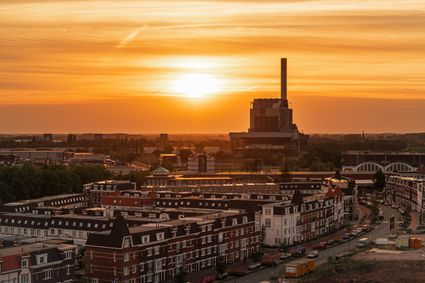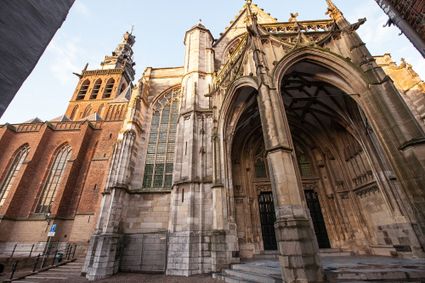Gerard Noodt, one of the most famous men from Nijmegen
Nijmegen is bursting at the seams with historical stories, ranging from leading figures to ordinary people, from neighbourhoods to political events. The Canon of Nijmegen encompasses the most important stories about Nijmegen’s history. One of these stories tells the tale of Gerard Noodt, a scholar from Nijmegen and one of the city’s most famous men. The Gerard Noodtstraat (above photo) is named after him. But who was he?
As an internationally known jurist, he advocated for freedom of religion or beliefs for all, a very modern and radical position for the time.
1647-1671: from a student of philosophy to a professor of law
Gerard Noodt was born in 1647, on the corner of Grotestraat and Grote Markt, as the son of a prominent family. After attending the Latin school in Nijmegen, he studied philosophy and mathematics at the newly founded university for two and a half years. He then switched to a law degree because it offered him more social opportunities.
He first took Petrus de Greve’s classes at the faculty of law in Nijmegen. In 1668, he stayed for some time in Leiden, Utrecht and Franeker, where he obtained his doctoral degree. At the end of 1669, Gerard Noodt returned to his native town, where he established himself as a lawyer. His legal skills were so great that at the end of 1671, at the age of 24, he was appointed a professor of law as a colleague of De Greve. That didn’t last long, however, because six months after his appointment, French troops invaded Nijmegen and any form of teaching became impossible – but Noodt still continued his legal work.
 An engraving of Gerard Noodt
An engraving of Gerard Noodt
1679-1725: freedom of religion and tolerance
As the University of Nijmegen effectively ceased to exist after the departure of the French because of a lack of money, Noodt left the city in 1679. He travelled around, working as a professor in Franeker, then in Utrecht (1684), and finally in Leiden (1686), where he would continue to teach until his death in 1725.
By the time Gerard Noodt arrived in Leiden, he was an internationally recognised scholar and a widely appreciated specialist of Roman law. Additionally, he was very successful at defending natural law and the principle of tolerance. His works were written in Latin, as was common at the time, but thanks to translations into French, they became well known throughout the entirety of literate Europe. His 1699 speech in which he, as rector magnificus of the University of Leiden, explained the legal foundations of the governmental system of the Dutch Republic, was an example of this – a republican form of government was rather unusual in Europe at the time. In this treatise, he also defended the idea that the government derives its power from the people. However, he is most well-known for his famous 1706 speech on religious freedom and tolerance, based in natural and national law.
Immerse yourself in the rich history of the oldest city in the Netherlands, because Nijmegen has a lot of stories to tell you. Curious? You can read all about it in this historical timeline.



